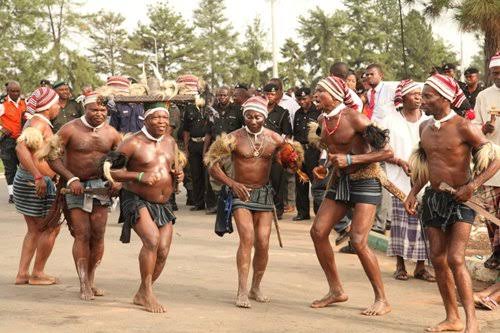“Panya”: The journey of the Igbo to Equatorial Guinea – A tale of history, laughter, and ‘Panyo’
In the 18th century, the Igbo people embarked on a journey that would lead them far from their homeland, marking the start of an extraordinary chapter in African history. Their destination? Equatorial Guinea. But the story isn’t as straightforward as it sounds, and let’s just say, there’s more to it than just ships sailing across oceans.
It all started with a simple pronunciation problem. You see, Spain had established Equatorial Guinea as a Spanish outpost, calling it Espanol, a name that’s become quite familiar to us all. But for the Igbo, “Español” didn’t quite roll off the tongue. If you’ve ever heard a Spaniard, especially an uneducated one, trying to pronounce their own language, you’ll know exactly why the Igbo couldn’t quite wrap their heads around it.
What they heard, more or less, sounded like “Panyo.” And from that moment on, Espanol was transformed into “Panya,” and thus, a new name was born. After all, if you’ve got the “ny” sound in your language, as the Igbo do, what’s a little creative distortion? It was a perfect fit.
Now, let’s rewind a little. In the 18th and 19th centuries, the Igbo people were not exactly tourists – they were workers. They landed in Equatorial Guinea to toil on the plantation fields, mostly under the harsh conditions of Spanish rule. They were the backbone of the labour force, making their mark in a land that was already home to various ethnic groups, including the Bubi and Fang.
READ ALSO: From Street Juice Seller to Bollywood Richest: Bhushan Kumar T-series empire worth Rs 10,000 crore
It didn’t take long for the Igbo community to establish itself. In fact, the first large Igbo diaspora outside Nigeria was right there in Panya. It became so popular that almost every Igbo family had a relative working or living there. For the Igbo, it wasn’t just about labour – it was about survival, trade, and migration. They went from being farm hands to traders, and the next destination on their list was Fernanda Po (now São Tomé and Príncipe), where they continued working in Portuguese-owned sugarcane plantations.
The migration wasn’t just a solitary affair. It soon caught the attention of neighbouring Efik and Ibibio groups, who also joined the wave of migration. What was initially an Igbo enclave soon became a melting pot of cultures, as the Igbo and their new friends from across the region fused into a community that still exists today in Equatorial Guinea.
While the plantation work was grueling – we’re talking hard labour under exploitative conditions, with low wages and the introduction of distractions like liquor and women of “easy virtues” – the Igbo people were nothing if not resilient. Many returned home empty-handed, their bodies and spirits broken, while others chose to remain, establishing second and third generations of Igbo families in Equatorial Guinea.
Fast forward to today, and the Igbo community is still present in Equatorial Guinea, with a significant population residing on Bioko Island. Although they are a minority in the country of 1.2 million, they remain a strong and proud presence. The Igbo language is recognized, and the community continues to practice their traditions, all while speaking a medley of languages like Pidgin English, Fang, Bubi, and, of course, Igbo.
Now, for a quick detour: This is not about Ebanga. No, this is about the real journey – a history that many may not be aware of, a geography lesson that stretches beyond the borders of Nigeria to a faraway land where the Igbo, with their resilience and courage, made their mark.
So, the next time you hear someone talk about Panya or struggle to pronounce Espanol, just remember: this isn’t just a matter of funny mispronunciations. It’s the story of an enduring journey, a testament to the Igbo spirit of survival, adaptation, and the unbreakable will to forge new futures – even in foreign lands. And who knew that a simple slip of the tongue would birth a whole new name in the history of Africa? History, after all, is made of such little moments.
As Kelechi Deca puts it: “This is history and geography class.”
And it’s a class well worth attending.
Follow the Neptune Prime channel on WhatsApp: https://whatsapp.com/channel/0029Va74ZvU2v1IqKByXoX3d
Do you have breaking news, interview request, opinion, suggestion, or want your event covered? Email us at neptuneprime2233@gmail.com


